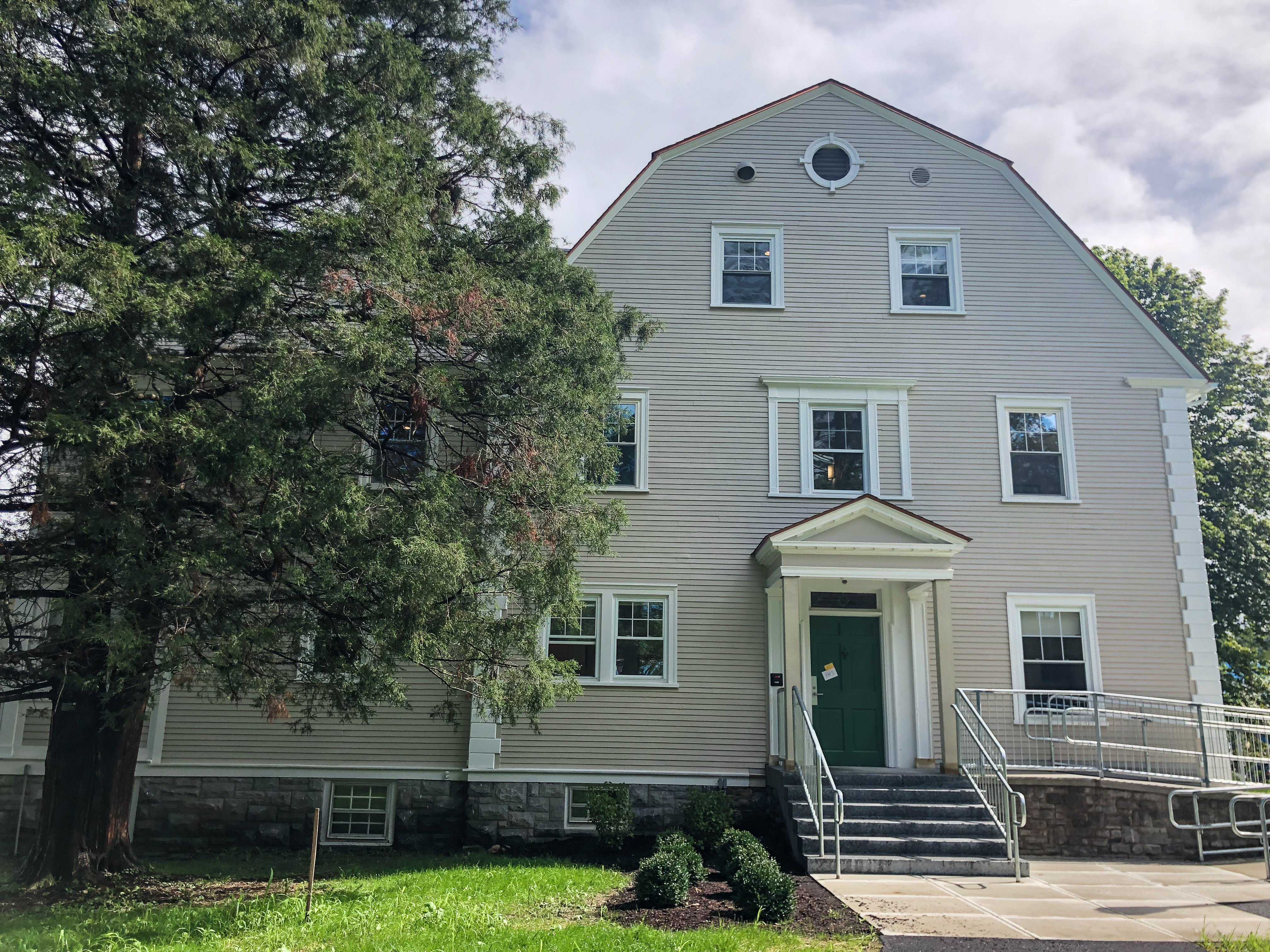
Rebecca Tauber/News Editor
Over the summer, Integrative Wellbeing Services (IWS) relocated to Hewat House, at the bottom of Hoxsey St. across from Thompson Health Center, in response to the College’s efforts to expand mental health and wellbeing services. The purpose of IWS has remained the same, however, according to director Gwendolyn Adam. “Integrative Wellbeing Services provides psychological and psychiatric treatment, crisis intervention and wellbeing promotion services to students, aiming to not only intervene when students struggle, but to also reach out to students to teach them necessary skills to promote wellbeing overall,” she said.
In recent years, the emphasis on mental health services has increased. “There is a current national level crisis in mental health for the college age population, with data indicating that rates of depression and anxiety on college campuses across the nation increased significantly each year since 2011,” Adam added.
Among the studies that Adam listed included which stated that 91-percent of students nationally reported feeling overwhelmed in the past year, 88-percent feeling exhausted, 71-percent feeling very lonely and 53-percent feeling hopeless, all of which are seen by the Center for Disease Control as having the potential to contribute to suicidal thoughts or actions.
In response, Adam said, the College has expanded its crisis services, increased ongoing psychotherapy, hired three full time staff positions in less than two years, diversified its team and broadened its individual and group therapy services and medication management, among other endeavors.
The consequent relocation to Hewat House also contributes to IWS’s goal of supporting students and staff, according to Adam. “The College worked with architects and IWS staff to design a place to support the specific work of IWS, allowing for the first time in several years all IWS staff and trainees to be housed together,” she said.
Through these expansions, Adam considered the role that privilege plays in the College’s ability to provide access to mental health. She also spoke to the College’s responsibility to help develop “a more comprehensive and strategic understanding of college student wellbeing – both here at Williams and in colleges across the country.”
Adam described that IWS aims to “understand the education, skills and practices college students need to: experience and relate to stress in healthy ways; experience intense feelings and stay safe while coping; connect with peers and other supports in healthy ways; and, develop plans for self-care that will be sustaining throughout the rigors of college life and beyond.”
Students’ wellbeing, and their knowing how to maximize and contribute to it, is also a central component of the expansion. The new location will provide group sessions (combatting the notion that students often feel they are the only ones struggling), special workshop sessions on issues ranging from body acceptance to sleep, community groups on issues of gender and sexual orientation, weekly drop-in sessions through “Let’s Talk” and mid-day opportunities to practice mindfulness.
These are not the only activities that will take place. “There are also campus level efforts, like Together Tuesdays, where we prioritize our role in advocating for all identities across campus, as well as partnerships across departments (Chaplain’s Office, Davis Center and Dean’s Office) to offer opportunities to promote community,” Adam said.
In spite of all these services, Adam acknowledged that student happiness is not always the immediate goal of their work. “Our goal is not student happiness when happiness is not called for given the circumstance,” she said. “Our goal is that students can be present to what is actually happening in their lives, have room for their needs, know how to take good care of themselves and contribute to the care for others and ask for help when needed.”
As the College looks to best reflect the changes on our campus and nationwide, Adam explained, IWS retains its original mission of providing “the highest quality mental health treatment services” and contributing to students’ wellbeing while emphasizing a need for “understanding how to cultivate needed skills in college students that will empower their wellbeing in college and beyond.








